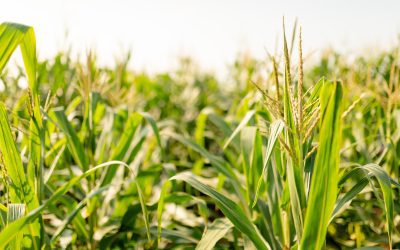Stress . . . It can get the best of everyone. Mountains of bills, poor health, job loss, and recently the pandemic and isolation, have greatly impacted the world. For farmers, add worrying about the weather, market prices, livestock health and making the bottom line come out positive escalates the unknowns.
Helpful advice for dealing with stress and anxiety comes from a cadre of producers and mental health professionals who shared their stories during the recent virtual 2021 Commodity Classic’s Mental Health on the Farm program.
“Stress does not discriminate,” said Adrienne DeSutter, a grain and cattle producer from North Windsor, Ill. “And as farmers, it’s how you work with the everyday load, and you don’t realize you’re under stress. Not having come from a farm family when I married my husband, it was an eyeopening experience. I now know this is farm life.”
When the DeSutters lost a farmer friend to suicide, they realized how stress builds and builds. “Stress can lead to extreme anxiety, depression and other mental health issues,” she said. “What we learned through our friend’s situation was as an industry, agriculture needs to recognize how to share and fuel connections with farmers.”
DeSutter, who also has her master’s degree in counseling, is a mental health advocate. She partners with ag businesses and organizations to promote healthy minds and prevent farmer suicide. DeSutter encourages a community approach to keeping farm families healthy.
“Is it more important to do chores or stop and go check on a friend you’re concerned about?” she asked. “Starting conversations with resistant farmers and helping people who don’t want to be helped is difficult but having conversation and visits regularly and consistently shows ‘I care about you. I may not understand what you’re going through but I’m here to listen.’ Let people know you are safe and not judging them. We won’t give up, we shouldn’t be a nag, but we want to help.”
Sometimes people believe if they “just think more positive thoughts,” they’ll “fix” themselves. Not so, DeSutter said. “I have a love/hate relationship with the phrase ‘just think more positive thoughts.’ That’s the most minimizing statement you can make to those suffering. It’s not that easy. Be careful you don’t say to yourself or someone the stress shouldn’t be there. When people are ready to talk solutions, then we talk about what is good in their lives and work through things one at a time. We know it can get better.”
Farmers are unique
A farmer’s DNA is unique, said Ted Matthews, a mental health practitioner with 30 years of counseling experience in rural Minnesota. “Every farmer has stress. It’s a matter of what they are going to do with it because you don’t want to find out in the end how to handle it. Let’s handle the stress right away. Consider if it was simple to identify stress, why are there more than 100,000 books written on it today? The more stress builds, the more crucial it is to take care of it.”
Taking care of a farmer’s tension can be daunting for them, Matthews said. Farmers generally don’t trust psychologists or psychiatrists, but they may trust someone like Matthews. With Matthews being involved in the rural arena, they don’t have to educate him what farming is and why it can be so burdensome. “Therapists who work with farmers don’t necessarily understand them, so we really need more psychologists trained to work with them and meet farmers halfway.”
Matthews said there’s also a stigma to getting conversations about stress and anxiety started. “Farmers seek help far too late. They think they have mental illness instead of mental health issues. They think there has to be something wrong with them if they have to get help. All of us want to be heard and not told. I want my spouse and kids to hear what I say, not fix me. We want to be understood.”
“Farmers seek help far too late. They think they have mental illness instead of mental health issues. They think there has to be something wrong with them if they have to get help. All of us want to be heard and not told. I want my spouse and kids to hear what I say, not fix me. We want to be understood.”
Handling the daily stress load now can be quite different than a few generations ago. Matthews said our grandparents handled concerns later rather than immediately.
“One problem old farmers have is saying ‘I’ll talk to my wife when everything is done.’ That is not a good system today. Immediate conversation is so important. There is way more risk now with farming,” he said. “First, women’s role in farming has changed significantly over generations. Their role used to be everything in the home and raising little farmers. Now they do the books, work off the farm or are the farmer. They are far more involved, have opinions about the finances and often their opinions differ from their spouses. If you’re out of farming now, you’re not going to ever get back in. Land prices are so high, it’s nearly impossible. Life is far more stressful, so you must learn how to cope with the current situation, and if you see yourself losing a multi-generational farm you may blame yourself. Many hold onto the farm longer than they should, because they can’t conceive of letting it go.”
Counseling and medication helped
Lowell Neitzel of Lawrence, Kan., is grateful he recognized physical and mental challenges early and began getting help. “Thanks to my wife, when I knew I wasn’t quite feeling myself, I discovered counseling and medication has helped. Doctors helped me learn ways to relax and see the big picture. The farm stays at the farm and home is home. I relax before I go in by petting the dog and letting the day’s drama float away.”
Neitzel was surprised when the local paper did a story on his struggles and farm landlords said they were proud of him. “It was refreshing for me when they said farmers are supposed to be tough guys, but they looked at me as an inspiration. Community leaders said they’d been in my situation and understood it. Now a local friend and I check in with each other often and we feel better as a result.”
Giving back after a rough mental health spell during college and subsequent cattle operation expansions provided Jason Medows, near St. Louis, Mo., with an energized outlook. “My move for college to a big city from a rural community was challenging, and cattle prices in 2014-15 were difficult, but I wanted to combine both worlds of my love for ag with my passion for pharmacy and health care. I began a podcast, Ag State of Mind with Jason Medows, that meets farmers where they are; independent and tough with windows of opportunities to listen and learn how to help friends and neighbors. Remember to give yourselves grace from time to time.”
Medows wants farmers to understand that like their equipment and property require maintenance, or their cattle are ill and need attention, so do they as humans. “We need to practice self-care, listen to our bodies and families, and develop our own unique health plan. For me, I exercise, check cows, and take my wife to dinner weekly. You are the greatest aet of your operation.”




